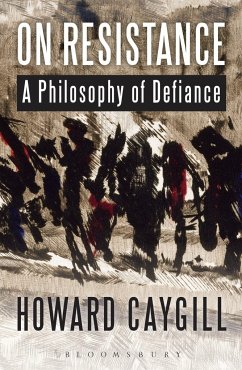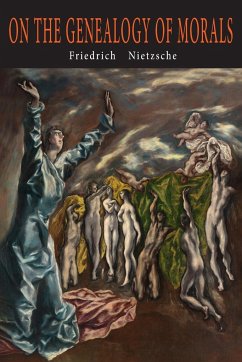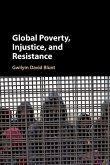No word is more central to the contemporary political imagination and action than 'resistance'. In its various manifestations - from the armed guerrilla to Gandhian mass pacifist protest, from Wikileaks and the Arab Spring to the global eruption and violent repression of the Occupy movement - concepts of resistance are becoming ubiquitous and urgent. In this book, Howard Caygill conducts the first ever systematic analysis of 'resistance': as a means of defying political oppression, in its relationship with military violence and its cultural representation. Beginning with the militaristic doctrine of Clausewitz and the evolution of a new model of guerrilla warfare to resist the forces of Napoleonic France, On Resistance elucidates and critiques the contributions of seminal resistant thinkers from Marx and Nietzsche to Mao, Gandhi, Sartre and Fanon to identify continuities of resistance and rebellion from the Paris Commune to the Greenham Women's Peace Camp. Employing a threefold line of inquiry, Caygill exposes the persistent discourses through which resistance has been framed in terms of force, violence, consciousness and subjectivity to evolve a critique of resistance. Tracing the features of resistance, its strategies, character and habitual forms throughout modern world history Caygill identifies the typological consistencies which make up resistance. Finally, by teasing out the conceptual nuances of resistance and its affinities to concepts of repression, reform and revolution, Caygill reflects upon contemporary manifestations of resistance to identify whether the 21st century is evolving new understandings of protest and struggle.
Hinweis: Dieser Artikel kann nur an eine deutsche Lieferadresse ausgeliefert werden.
Hinweis: Dieser Artikel kann nur an eine deutsche Lieferadresse ausgeliefert werden.
There could not be a more timely moment for this book ... Acutely attuned to this context, which was unfolding as he wrote, the philosopher Howard Caygill offers a meditation on the history of resistance as idea and lived experience, a term which, as he states at the outset, is "strangely unanalysed" ... the book is wholly inspired by the spirit of resistance whose often unhappy trajectories it so brilliantly describes ... It is his unique mix of caution and enthusiasm, his avoidance of blind utopianism and of defeatism alike, which makes this book so important ... What kind of human being, On Resistance prompts us to ask, does resistance promote? Not only what do we want to achieve, but who do we want to be? ... On Resistance is as much an act as a philosophy of defiance. It will be indispensable for anyone thinking about resistance in our times, not least for demonstrating so profoundly that, for all its perils, resistance still possesses its "own necessities, its own affirmations and its own joy". Jacqueline Rose The Guardian








